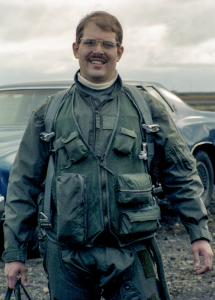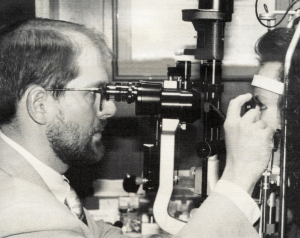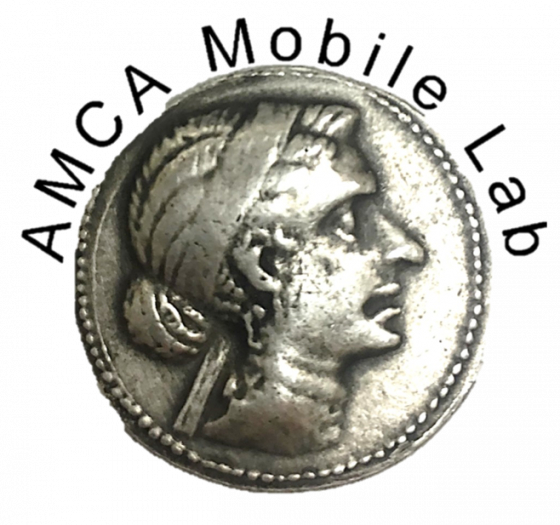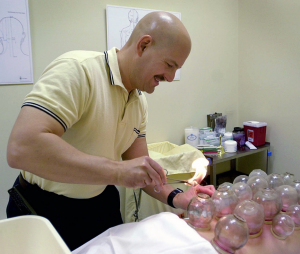Mark Kimpel is a graduate non-degree student interested in classics, philosophy, and theology. Now retired, Mark was a National Merit Scholar and earned a degree in biochemistry and molecular biology from Purdue University and a medical degree from Indiana University. He served in the U.S. Navy as a Flight Surgeon for 4 years, winning the Outstanding Student award for his class. He served as the base flight surgeon for the NATO base in Iceland where he flew search and rescue missions in Air Force helicopters, anti-submarine warfare and medivac missions on Navy P-3’s, and flew back-seat on dog-fighting training in F-15’s. During this time, his back was injured in an ejection-seat trainer and a subsequent helicopter hard-landing. Following this, he served on the pre-commissioning unit of the carrier Abraham Lincoln and was recalled to active duty with the Marines during Operation Desert Storm.
After Naval service, Mark was an ophthalmology fellow at the Mayo Clinic, after which he practiced in Wisconsin. A deteriorating back and neck from his flying days combined with a motorcycle accident led to a career change. Mark graduated from the UCLA School of Medicine program in medical acupuncture and was one of the first U.S. physicians to become board certified in acupuncture. While practicing in Carmel, IN he became interested in the neuro-biologic basis of acupuncture’s effectiveness in pain management and entered the medical neurobiology program at I.U. School of Medicine. All totaled, Mark has authored or co-authored 16 peer-reviewed articles in subjects as diverse as glaucoma, pain, and alcoholism. Mark is now retired and spends his time on homework, reading Stoic philosophy, and exercising with his wife Terri.
While practicing in Carmel, IN he became interested in the neuro-biologic basis of acupuncture’s effectiveness in pain management and entered the medical neurobiology program at I.U. School of Medicine. All totaled, Mark has authored or co-authored 16 peer-reviewed articles in subjects as diverse as glaucoma, pain, and alcoholism. Mark is now retired and spends his time on homework, reading Stoic philosophy, and exercising with his wife Terri.
I come to the Classics Department from graduate studies at Christian Theological Seminary where I became interested in Patristic theology. Patristics is the study of the early church fathers (and some mothers) who took over the leadership of the church after the death of the original Apostles. Dusty, moldy stuff you might say, but I would beg to differ. Perhaps this applies more the Christians (Catholics, Orthodox, and Protestants all included), but everyone in our culture at large is suffused with ideas incubated in the years 100 – 500 C.E. I learned at CTS it is important to understand one’s “embedded theology”, those beliefs about God that are so much a part of us we rarely question.
I am on sabbatical from CTS as I take a step even further backward an examine the embedded theology and world-view of the Church Fathers. Why did they write and teach the things they did? Augustine, for example, wrote many things that are consonant with the Bible, but he did go beyond its others. He was, like we are, both a product of his times and, importantly, struggling to make sense of a changing world and amend his embedded structures as he was able and he saw fit. Examining how he went about that process can be instructive for us in at least 2 ways:
- What did he see as core to his faith?
- Where might he have erred and how have these errors hindered my own growth?
Hey, wait a minute, what about Classics? Latin? Greek? One thing I’ve learned while translating it that no translation is perfect if you want to understand a text, you need to read it in its native language. Thus, Latin for now and probably Greek down the road. I am also trying to learn about the prevailing cultural and intellectual currents of the period to deepen my ability to relate to these 1500-2000-year-old writings. Finally, I should also be honest and say that my studies at Butler have been really fun, the classes well-taught, and the students engaging and friendly. I am so appreciative of being treated like a student, not a fossil!
In addition to my regular studies, I have re-booted my career in informatics and statistics by getting involved in a few projects with Drs. Kvapil and Bungard. Dr. Kvapil has been working for many years on a data-set of measurements taken from a Mycenean pottery workshop that was suddenly abandoned and all the pots chucked down a well. This gives us a wealth of information on the work output of a single workshop.
I am working with Dr. B. on his project examining the utility of the Padlet vocabulary boards. Does this visual interaction enhance learning? We are working on the best experimental design (note to future researchers, always do this first BEFORE you conduct your experiment) and the best statistical approach to the data. A project we are starting together grew out of my in-class research paper on Plautus’ Trunculentus. In the paper on Truculentus, I used the open-source software toolkit Classical Language Tooklit http://cltk.org/ to parse and the lemmatize the text of Truculentus by speaker. I then used text-mining techniques to look at the pattern of usage across characters of the Latin words for female sex-worker. I demonstrated differences in usage patterns and then took these findings back to the text for a more classical literary analysis. Given Dr. Bungard’s expertise and continued interest in Plautus, our next step is to apply these techniques across all of Plautus’ plays. Stay tuned!

